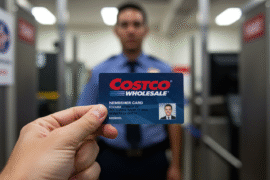Does workers comp cover pain and suffering? This is an essential question that many ask after experiencing a work-related injury.
Accidents at work may happen at any time, so it’s important to know how to file a workers’ compensation claim in advance. Employees should consult with a workers’ compensation attorney to make up for missed pay and medical expenses spent while out of work due to an accident.
If you or a loved one has been hurt in the workplace, the measures listed below may help you get the compensation you deserve.
Step #1: Notify a Manager
If you are hurt at work, find your boss and inform them. Your boss may evaluate your rights and provide advice.
No matter the severity of your injuries, notify your supervisor. You’ll need to complete papers and fill out an accident report as soon as possible.
Certain states require employees to report accidents by a specific date. You won’t be paid until you do, so you must report the incident to get compensated.
You should also inform your supervisor if you have any safety concerns. Your worries may inspire them to change. And who knows? Maybe their improvements may rescue someone else from future harm.
Note that if your employer doesn’t react empathetically after learning about your work injury, there’s a slim chance they care about their company’s employee experience. So after working through these steps, you should consider seeking employment with a company that cares about your well-being.
Step #2: Get Medical Help
Get medical attention if you are injured at work. Your boss may insist you see a particular doctor, but get a second opinion from a doctor not associated with your place of work.
In some poor instances, a company doctor may react in the best interest of your employer. However, there may be certain coverage exclusions if your employer has a specific company doctor.
If you disagree with the doctor’s diagnosis, you are entitled to a second opinion. Workers’ compensation may not cover the second visit. You may have to pay out of pocket, but keep note of any medical bills.
Explain everything to the doctor and list your symptoms in detail during your visit. Your doctor should keep a record of your words.
Lastly, request a medical report from them, since their report may help you develop a claim, both for workers’ compensation and health insurance purposes.
Voted "Best Overall Budgeting App" by Forbes and WSJ
Monarch Money helps you budget, track spending, set goals, and plan your financial future—all in one app.
Get 50% OFF your first year with code MONARCHVIP
Step #3: Collect Data
Return to the accident area as quickly as possible because someone may tidy up the accident site. Before anyone makes adjustments to the accident area, obtain proof. This proof could not only support you when filing a claim but could help your company build employee trust by enhancing the area to prevent the accident from happening again.
It’s usual to forget specific things following a work-related accident. So jot down your memories as quickly as you can. As you write down what you remember happening, consider:
- Names and contact information of any witnesses
- The accident date and time
- What you were doing at the time
- Where the injury occurred
Your boss may claim you weren’t wounded on the job. This is why you need to be sure you submit an official report the same day if possible. They may not take your allegations seriously.
Step #4: Make a Workers’ Comp Claim
If you are hurt at work, submit a workers’ compensation claim as soon as you can. It will cover your injuries and work-related illness. The Workplace Safety and Insurance Board (WSIB) covers worker’s compensation.
You don’t have to prove you were hurt on the job, but you must show that work caused your injury.
Repeated movements, for example, might cause back injury. In some instances, it’s difficult to pinpoint a single source. However, you may state that the issues began at work and worsened.
Report any work-related injury, whether gradual or caused by a specific accident. You don’t want the statute of limitations to pass. To avoid missing the deadline, file your claim promptly.
Step #5: Use a Lawyer, if Possible
Find an attorney with relevant expertise. Their previous experience might bolster your case.
Consider how long a lawyer has been practicing while looking for one. An experienced lawyer can use their expertise to help you.
You also need to choose a lawyer who has experience with workers’ compensation issues. The right workers’ compensation attorney will know the necessary laws and procedures.
A licensed lawyer to practice law in your region is a good choice. Checking the website of your local bar organization can be an excellent place to start your search, since some laws vary by state.
Your workers’ comp lawyer should help you stay grounded. Look elsewhere if they make outrageous claims. A lawyer who shares your values will significantly help you make your case and fight for the compensation you deserve with their support.

Reviewed and edited by Albert Fang.
See a typo or want to suggest an edit/revision to the content? Use the contact us form to provide feedback.
At FangWallet, we value editorial integrity and open collaboration in curating quality content for readers to enjoy. Much appreciated for the assist.
Did you like our article and find it insightful? We encourage sharing the article link with family and friends to benefit as well - better yet, sharing on social media. Thank you for the support! 🍉
Article Title: 5 Steps to Take After a Work-Related Injury
https://fangwallet.com/2022/07/15/5-steps-to-take-after-a-work-related-injury/The FangWallet Promise
FangWallet is an editorially independent resource - founded on breaking down challenging financial concepts for anyone to understand since 2014. While we adhere to editorial integrity, note that this post may contain references to products from our partners.
The FangWallet promise is always to have your best interest in mind and be transparent and honest about the financial picture.
Become an Insider

Subscribe to get a free daily budget planner printable to help get your money on track!
Make passive money the right way. No spam.
Source Citation References:
+ Inspo












































